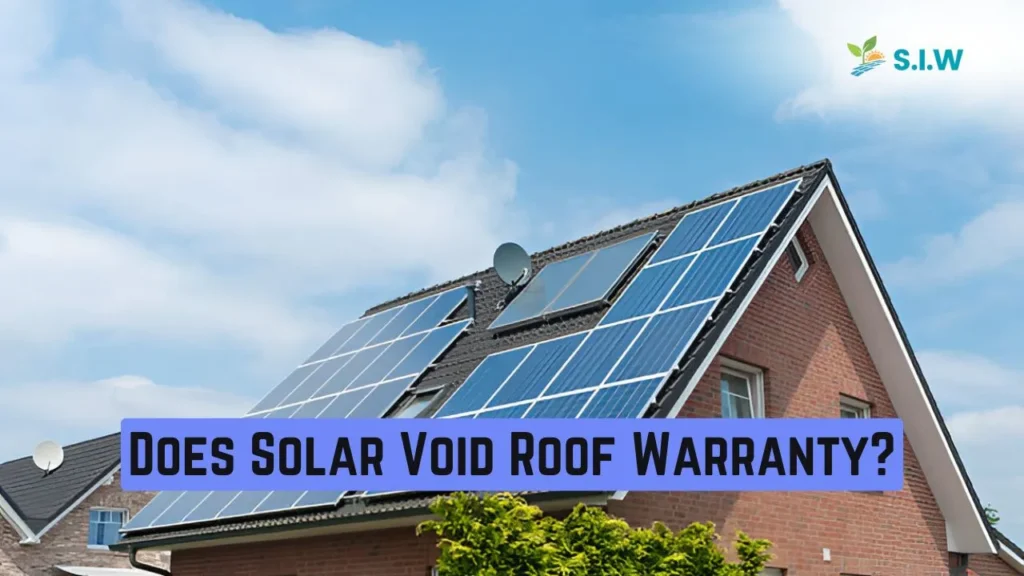When considering solar panel installation, one of the most common concerns homeowners face is whether adding solar panels to their roofs will void their roof warranties. This article will explore this issue in depth, addressing the impact of solar installations on roof warranties and providing a roadmap to ensure your warranty remains intact while enjoying the benefits of solar energy.
Understanding Roof Warranties
What is a Roof Warranty?
A roof warranty is a legal agreement between a homeowner and a roofing company or manufacturer that guarantees the performance and longevity of the roof for a specified period. Roof warranties can be divided into two main types: manufacturer warranties and contractor warranties. While a manufacturer warranty covers the materials used in the roof, a contractor warranty typically focuses on the workmanship of the roof installation.
Types of Roof Warranties: Manufacturer vs. Contractor Warranties
- Manufacturer warranties usually offer coverage for defects in roofing materials, such as shingles or tiles. The length of coverage varies based on the material quality, typically ranging from 20 years to a lifetime.
- Contractor warranties provide protection against faulty installation, covering labor issues like leaks due to improper roofing techniques. These warranties tend to be shorter, spanning 5 to 10 years.
Duration and Coverage of Typical Roof Warranties
The lifespan and coverage of roof warranties depend on several factors, including the roof’s material, the quality of installation, and environmental conditions. Typical roof warranties cover damage like leaks, shingle deterioration, and faulty installations, but exclusions often include damage from external sources like natural disasters or unauthorized modifications, such as solar panel installations.
Solar Panel Installations on Roofs
Benefits of Installing Solar Panels on Roofs
Solar panels offer numerous benefits, from reducing electricity bills to minimizing your carbon footprint. By harnessing the power of the sun, homeowners can generate renewable energy and even sell excess power back to the grid.
Popular Roof Types for Solar Panel Installations
Not all roof types are ideal for solar installations. Flat roofs, asphalt shingles, and metal roofs are popular choices due to their structural stability and ease of installation. However, some roofs, like clay tiles, may present challenges during installation.
The Process of Solar Installation on Roofs
Installing solar panels involves several steps: assessing the roof’s condition, designing the layout of the solar array, installing mounting hardware, and finally securing the panels. This process requires drilling into the roof, which raises concerns about how it may affect existing warranties.
The Impact of Solar Panels on Roof Warranties
Does Installing Solar Void Roof Warranty? (The Myth and Reality)
One common misconception is that adding solar panels will automatically void your roof warranty. However, this isn’t always the case. If the installation is performed by certified professionals following proper procedures, the warranty should remain valid. Problems arise when unqualified installers damage the roof or fail to follow guidelines set by the roofing manufacturer.
Manufacturer Warranties and Solar Installations
Most manufacturer warranties specify conditions under which they remain valid. Some warranties may explicitly exclude coverage for modifications like solar panel installations. To avoid voiding the warranty, homeowners should ensure the installer adheres to manufacturer-approved techniques.
Contractor Responsibilities and Solar Installation Impact
Solar installers have a responsibility to avoid damaging your roof during the installation process. Many reputable solar companies offer warranties on their installations, which can cover damage caused by improper mounting or drilling into the roof.
Roof Compatibility with Solar Panels
Common Roof Materials and Solar Panel Compatibility
Some roofing materials, such as asphalt shingles, are better suited for solar panel installations than others. Asphalt shingles and metal roofs can usually support solar installations without issue, while clay and slate roofs require more careful handling to prevent damage during the installation process.
Roof Age and Its Role in Warranties and Solar Installations
Older roofs may need to be replaced before installing solar panels. A roof nearing the end of its warranty period is more susceptible to damage during installation. It’s essential to check the roof’s condition and warranty before proceeding with solar installation to avoid complications.
Solar panel installations do not inherently void roof warranties, but careful consideration is necessary. By choosing certified installers, understanding your roof warranty’s terms, and taking preventive measures, you can enjoy the benefits of solar energy while protecting your investment in your home.
Frequently Asked Questions
- Does solar void roof warranty?
- No, not necessarily. Proper installation by certified professionals can prevent warranty voiding.
- How does roof age affect warranty coverage for solar installations?
- Older roofs may need replacement or repairs before solar installation, as age can influence warranty terms.
- Can I transfer my warranty to a new owner?
- Yes, many roof warranties are transferable, but terms vary by manufacturer and contractor.








